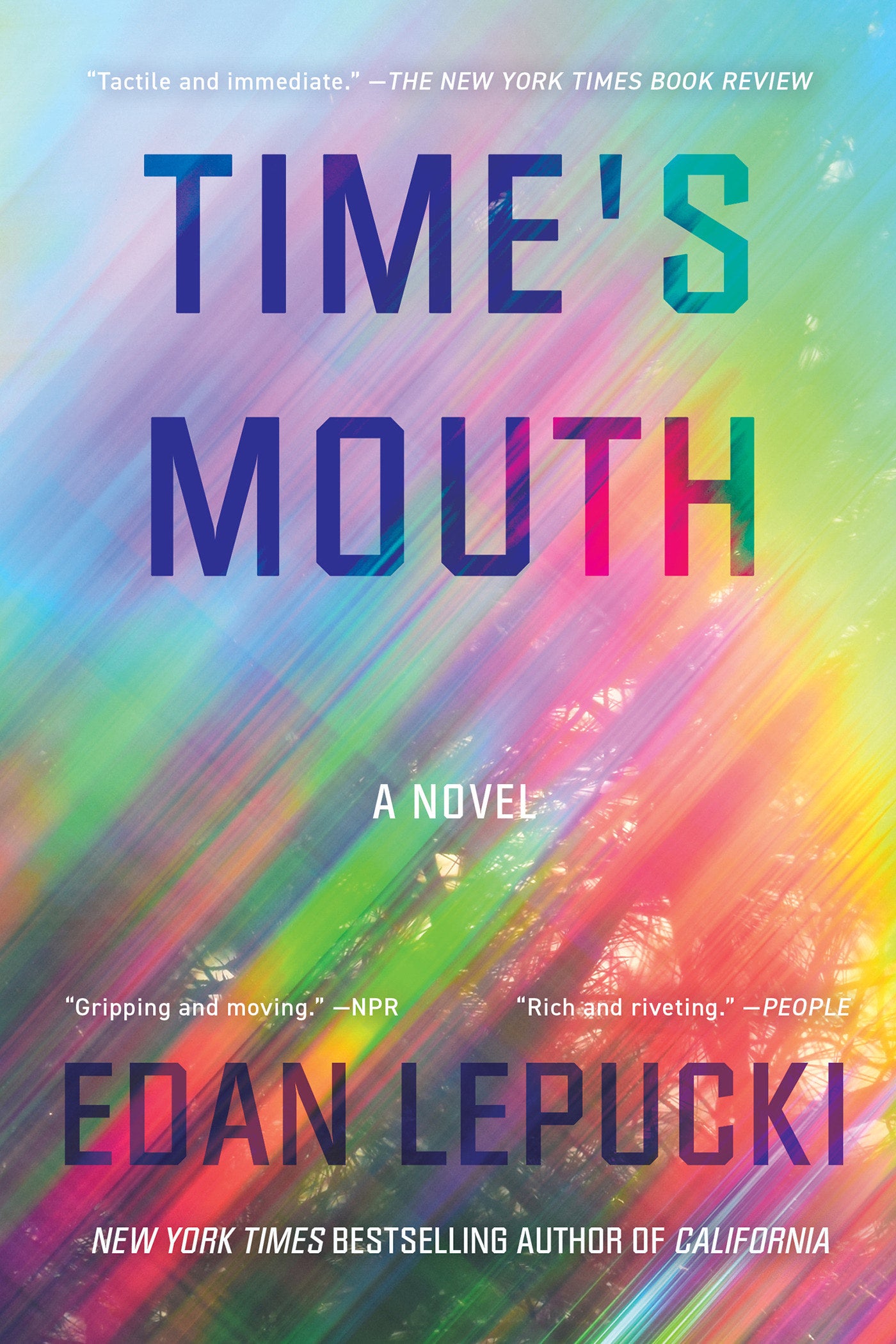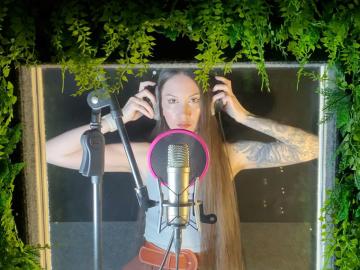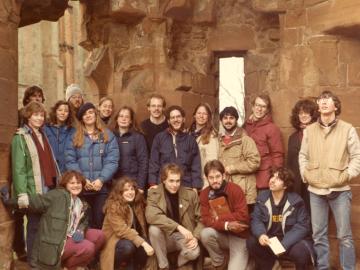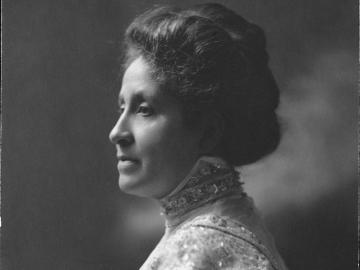Oberlin Alumni Magazine
Time of the Season
July 29, 2024
Kate Kaput

From a young age, Edan Lepucki ’02 knew she was going to be a writer. Growing up in Los Angeles, she wasn’t sure how she was going to accomplish this — and had no proof she could actually make this dream come true — although she viewed majoring in English and creative writing at Oberlin as a solid start.
Even that choice came with some unexpected challenges. “I’d been a big poet at my high school, but when I took a poetry seminar at Oberlin, we had to write in iambic pentameter, and it practically broke my brain,” Lepucki says. “I was totally out of my depth.” Still, she was undeterred. “In my final semester, everyone was scheduling big job interviews, and I was like, ‘Well, I’m just going back to Los Angeles to work in a bookstore because my dream is to become a writer.’”
Lepucki’s determination paid off. She’s now the author of three novels—2014’s New York Times best seller California, 2017’s Woman No. 17, and 2023’s Time’s Mouth—and the editor of the essay collection Mothers Before: Stories and Portraits of Our Mothers as We Never Saw Them. Her latest, Time’s Mouth—which is coming out on paperback on August 6—made the long list for the 2024 Joyce Carol Oates Prize, which honors mid-career fiction authors.
In 2014, the New York Times described you as having “won the literary Lotto” when late-night host Stephen Colbert encouraged The Colbert Report viewers to buy your debut novel, California. How did that experience jump-start your career?
I’d written an earlier book that didn’t get published, and I’d been through a two-year process of rejection, so when California was sold at auction and multiple publishers wanted to buy it, it felt like a very big deal. But I also had low expectations for how well it would do.
Around the time the book became available for preorder, Stephen Colbert’s publishing imprint, Hachette, was in a contract dispute with Amazon. Amazon was retaliating by removing preorder buttons for all Hachette titles, and Colbert wanted to highlight that. He also wanted to teach Amazon a lesson.
He brought author Sherman Alexie onto the show to recommend a Hachette novel — and they chose mine. They encouraged people to order the book from an independent bookstore, which led to a preorder frenzy. California became an instant New York Times best seller.
Of all the author fantasies I’d nursed over the years, this wasn’t one of them. I didn’t know this was a fantasy I could have! It was surreal.
 Since then, you’ve published two more books. How has your career trajectory looked since such a public big debut?
Since then, you’ve published two more books. How has your career trajectory looked since such a public big debut?
People think that once you publish a book, you have a career as a writer, but it’s actually very much book-to-book. In some ways, the way California debuted meant that my second book would be much easier to sell, no matter what I wrote. That felt liberating.
California was a post-apocalyptic story about a couple escaping L.A. to live by themselves in the woods. Woman No. 17 is very different; it’s a realist contemporary story about art and having children, with traditionally unlikable literary characters. I never expected it to do as well as California, but when it came out, the scales really fell from my eyes. It got good reviews, so I felt vindicated in my progress as a writer, but it was not a best seller. It became clear that you can be hot one day and not the next.
My third book, Time’s Mouth, is told from multiple points of view, and it spans decades with elements of time travel. It took me seven years to write, and in some ways, publishing felt like a different world this time around. I’ve learned so much about myself as a writer and about the stories I want to tell.
What kind of stories are those?
When you’ve written multiple books, there’s nowhere to hide in terms of seeing the patterns in your work. First, there’s public proof that I’m obsessed with California and the problematic burden of a mythologized place. I’m very interested in how setting influences what we feel and how where we come from shapes who we are.
I also keep returning to themes of parenting and being parented — not just the everyday logistics and experiences of being a parent, but also the existential questions of it. What does it mean to raise somebody? What does it mean to be a good parent, and how can you be there for your children? How does it feel to raise someone who then grows up to have their own life?
My own mother has always been very present in my life, so I think about it a lot: What if she weren’t, and how would that affect me? The way you’re mothered and whether or not you’re mothered poorly reverberates throughout your life again and again. Everything parents do has existential weight for their children.
You’re firmly rooted in California now, but how did your time at Oberlin shape you as a writer?
I’ve always wanted to remain engaged in the wider world and to do something that matters. That comes from having gone to Oberlin.
Oberlin also taught me to pay attention to words — to stop and look at an individual passage and think about its relevance, both within the text and within a larger cultural context.
Two summers ago, two friends and I came back to spend a day on campus. We walked around in a daze and sat on the rocking chairs at Wilder, swapping memories and remembering our younger selves — how long ago that was and yet how immediate it still feels. Working on Time’s Mouth taught me that you can’t wish for time travel, but there are some very specific memories that I would love to revisit, for even a day.
Kate Bigam Kaput is a Cleveland-based writer.
This story originally appeared in the Summer 2024 issue of the Oberlin Alumni Magazine.
Tags:
You may also like…
Voices Carry
March 13, 2025
Grammy-certified vocalist and viola da gamba player Ari Mason ’14 finds her niche in video games, films, and a vocal library.
London Calling
March 13, 2025
For Tracy Chevalier ’84, the Oberlin-In-London program was a magical, intense period of cultural and intellectual stimulation. As the beloved study-away experience celebrates 50 years, the New York Times best-selling author looks back on the semester she spent studying and living in London.
A Banner Held High
February 26, 2025
In 2018, Oberlin College named its main library after civil rights leader Mary Church Terrell, Class of 1884.


